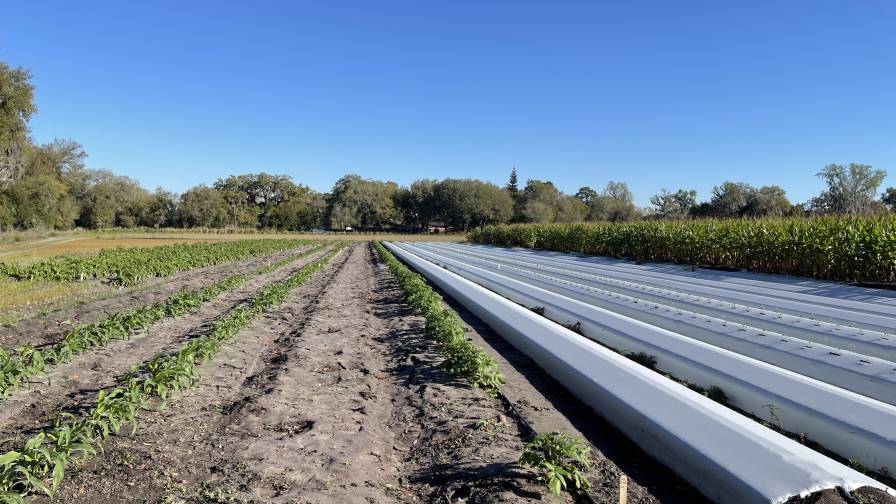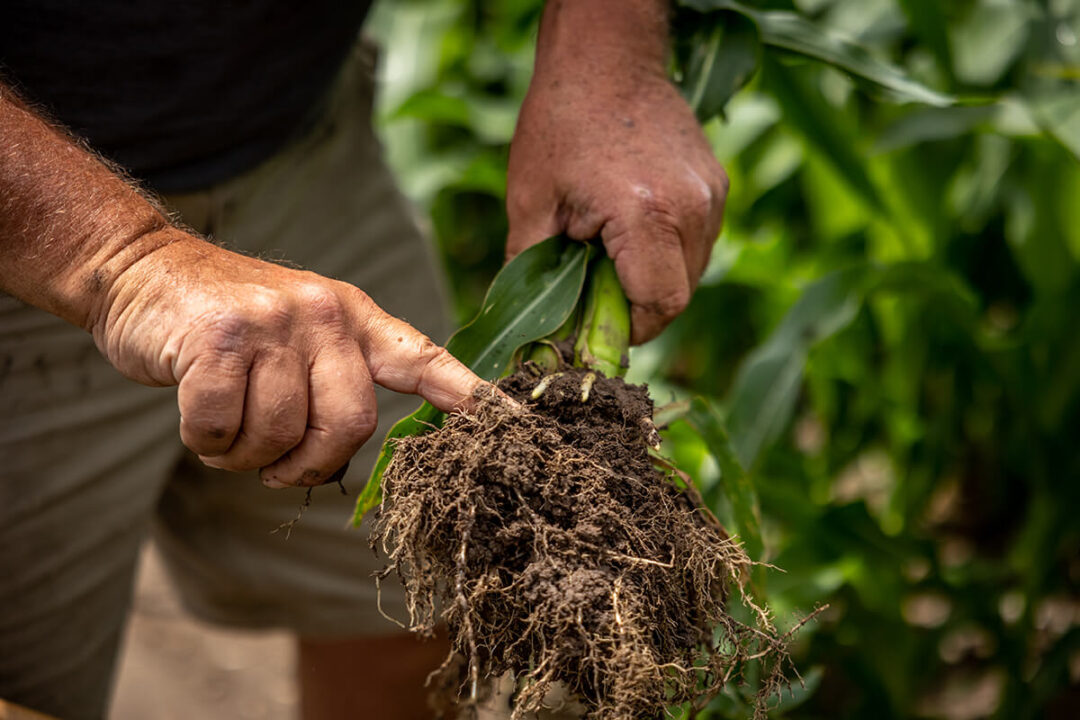Monsanto Commits To Increase Water And Nutrient Efficiency
It’s an unavoidable dilemma: fresh water and productive soil are vital to sustain life and to grow the food we need. As the global population skyrockets during the next three decades, so will the demand for food, fresh water and healthy soil. This reality creates an urgent challenge for everyone involved in growing food: produce more while using resources more efficiently.
“Agriculture is at the intersection of many major challenges today – whether it’s growing population and food demand, water availability, soil health or climate change,” said Hugh Grant, chairman and CEO at Monsanto. “Addressing these challenges directly is what all of us at Monsanto are focused on every day – working together with farmers and partners around the world to deliver a safe, affordable and nutritious food supply that sustains our planet.”
As part of its broad commitment to sustainability, today Monsanto announced two important companywide commitments to help address critical challenges in the areas of water and nutrient efficiency.
Irrigated Water-Use Efficiency Goal
First, the company will work to increase water-use efficiency in irrigation across its own global seed production operations by 25% by 2020. While overall water use will always vary due to the weather, Monsanto estimates that these conservation efforts alone will result in saving between 30 billion and 80 billion gallons of water annually, the equivalent of filling 45,000 to 110,000 Olympic-sized swimming pools.
Monsanto’s industry-first water-use efficiency commitment includes both Monsanto’s owned and leased operations as well as the contract farms that grow seeds for the company’s products. As part of the commitment, Monsanto plans to provide annual public updates on its progress toward the 25% goal in its sustainability updates and reports.
To reach the goal, Monsanto will expand implementation of drip irrigation systems, which enable water-use efficiency of up to 95%, compared with other systems that range from 50 to 65% efficiency. The company already has deployed these systems at facilities in water-stressed areas like India, Hawaii and Mexico.
“We have a tremendous opportunity to increase efficiency with modern irrigation technology and precision farming best practices,” said Bob Reiter, vice president of global supply chain at Monsanto. “We have been working to test and promote implementation of water-efficient technologies for years, and these efforts will be accelerated with our new irrigated water-use efficiency commitment.”
Nutrient Efficiency Pledge
Water-use efficiency is just one area of Monsanto’s overall focus on sustainability. Soil and nutrients is another critical area.
As announced today at Walmart’s Sustainable Products Expo, Monsanto’s Hugh Grant also pledged that the company will continue to innovate and advance smarter seeds and precision management tools that enable farmers to use nutrients more efficiently and curb greenhouse gas emissions on one million acres in the U.S. by 2020.
“We’ve estimated that farmers make between 40-50 business critical decisions during the growing season that directly impact how much they can grow and how efficiently they can do it,” said Grant. “Agriculture has the opportunity to deliver new tools to help farmers use resources more efficiently while increasing production. To support these efforts, Monsanto pledges to work and share with farmer customers, stakeholders, industry groups and partners to help accelerate these efficiencies.”
This new effort will complement other recently announced joint projects in soil health and water quality including the Soil Health Partnership hosted by the National Corn Growers Association and co-sponsored by the Walton Family Foundation. Monsanto’s support of cover crop trials through the Agronomy Science Foundation and USDA’s Resilient Economic Agriculture Practices (REAP) initiative reinforces the company’s desire to help farmers understand the potential benefits of management practices that improve soil health.
“Stewardship is number one as my family and I are committed to leave the land better than we found it. Efficient nutrient utilization is key,” said Leon Corzine, a fifth-generation family farmer and one of our nation’s leading grower representatives from Assumption, Illinois. “I am excited about the future as more tools are becoming available to us on the farm. Continued advancements in seed technologies (both biotechnology and genetics) and data technologies are helping us build on these improvements, supporting a sustainable farming system as we meet the needs of a growing population.”
Sustainability Progress Update
As Monsanto advances in its sustainability journey, the company released today the Monsanto 2013 Sustainability Progress Update, outlining some key water-related accomplishments made since the company’s last full report in June 2013.
“Sustainability reporting not only enables us to continue to be a more transparent and open company, it also pushes us to work even harder alongside farmers and partners to adapt to challenges and continue to improve agriculture,” said Natalie Rosenbloom, vice president of sustainability and partnerships at Monsanto. “We are dedicated to work with farmers and stakeholders to provide innovations that can help farmers as well as consumers ensure that we get the most out of every seed, every acre and every harvest in a sustainable way.”
Future sustainability progress reports will include updates on Monsanto’s progress toward its irrigation water-use efficiency commitment and its efforts to maximize nutrient efficiency.
In line with Monsanto’s commitment of conserving natural resources, the company offers the full content of the Monsanto 2013 Sustainability Progress Update online at: sustainability.monsanto.com.






